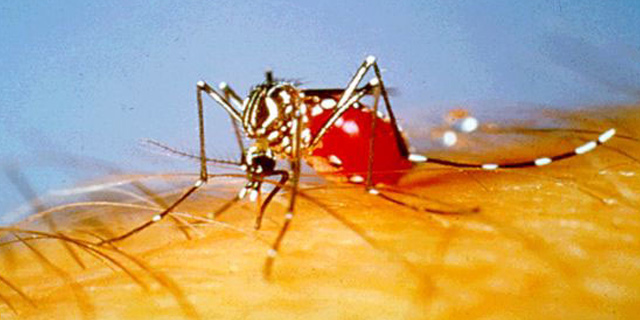Warm summertime evenings are great for family gatherings and time spent outdoors. The more time spent outdoors the higher the risk of being “bitten” by mosquitoes. Unfortunately mosquito bites are unavoidable during the summer months. Sometimes you can take every step to eliminate mosquitoes but there is may be them few that are focused on the blood meal and get through to bite you. Everyone has experienced the after effect of mosquito bites but do you really know how the body reacts to the bite, why the bite itches, or the dos and don’ts?
Here are a few things that you should know about mosquito bites and the best practices for after being bitten.

The Effect on the Body
After being bitten by a mosquito you will be left with a red swollen itchy lump on your skin. The lump is there not because you were bit by a mosquito but because of the saliva that a mosquito injects when they pierce your skin. A mosquito’s saliva contains enzymes that serve two purposes: a painkiller so the prey does not notice they have been bit and to thin the blood so it does not clot. When your body detects these enzymes it will react triggering the production of histamine. The histamine will then move to the site of the mosquito bites and binds to the receptors causing the blood vessels to dilate. The increases blood flow brings more white bloods cells to the area to fight off the foreign enzymes.
Why Mosquito Bites Itch
The body’s production of histamine is what makes the area to swell and become itchy. Every person’s body reacts differently to mosquito bites. Some people over produce histamine which can then make the swelling and itching worse than a person that does not produce as much. Most people have a minor allergic reaction to mosquito bites; some even become relatively immune to them with repeated exposure. However, other’s reactions become increasingly more sensitive overtime making the side effects of the reaction worse each time. Children are especially vulnerable to allergic reactions to mosquito bites as their immune system is still building. There are the rare extreme allergic reactions such as cellulitis and anaphylaxis. These reactions do not occur often at all.
What Not To Do
There really is only one absolute don’t with mosquito bites…Do Not Scratch!! For most people the first reaction to noticing a mosquito bite is to scratch it because it itches and you want relief. Unfortunately, the scratching will only offer temporary relief. The scratching will actually cause the area to swell more and the itching to worsen. Also, scratching mosquito bites will cause the skin to break causing an open sore and increases the areas chance of infection. So absolutely try to fight the urge to dig your skin off because of itchy red mosquito bites. The bite in most case will go away after a day or two.
What to Do
Once you have been on the receiving end of mosquito bites all you can do is try to sooth the swelling and itching. You may find that some treatments work better than others for you but they may not be effective for everyone. It is a good idea to know many different options for treating mosquito bites. They include:
- Calamine lotion or Caladryl – A combination of zinc and iron oxides have a soothing effect on the itchy skin. Caladryl also contains a mild topical numbing agent for pain.
- Ice Pack – the cold constricts the blood vessels which will help reduce the swelling and numbs the area to reduce the discomfort.
- Ibuprofen or hydrocortisone cream – both will help to reduce the swelling. Hydrocortisone also soothes the itchy skin.
- Anti-histamines – Benadryl or other over-the-counter anti-histamines can help to counter the effects of the body’s histamine production, blocking them from binding to receptors. This will subside the itching and allow the blood vessels to return to normal.
- Wash the Area – if scratching could not be resisted and a break in the skin occurred make sure to wash the area with soap and cool water to avoid infection.
Home Remedies to Try
Believe it or not there are many items commonly found throughout the home that some people have found to be effective when treating mosquito bites. Take a gander and maybe give a few of them a try to see if they will work for you or your family.
- Spoon: Believe it or not, many people find that applying a warm or a cold metal spoon to the affected area can alleviate the itch and discomfort.
- Onions: The juice from a fresh onion may be able to provide relief — as long as you don’t mind shedding a few tears in the process! Of course, you’ll want to avoid applying this mosquito home remedy anywhere near your eyes or nose.
- Preparation H: Phenylephrine, the active ingredient in Preparation H reduces the swelling for mosquito bites.
- Toothpaste: Some claim that applying toothpaste to the affected area will relieve the itch on contact.
- Baking soda: Baking soda is an alkaline-based product that can neutralize the pH in the skin, which can promote the bite healing process.
- Table salt: Salt offers antiseptic and anti-inflammatory properties that can provide mosquito bites relief. Combine the salt with a small amount of water to create a paste that can be applied to the effective area.







